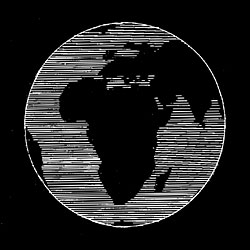Point of View
Musings on AIDS in Asia
By Amos R. Townsend, M.D.
During the past four decades, I have worked in or visited over 40 countries, in and out of an Air Force uniform. In June of this year, I traveled to the Philippines as a representative of Rotary International; two years ago, I was asked to assess the health and education needs in Cambodia's Mondulkiri Province, and I made side trips to Vietnam, Thailand, and Malaysia; 12 years ago, I did refugee and prisoner-of-war work in Thailand. I first traveled to the Far East in the late 1960s.
Obviously, there have been many improvements in America's relations with Asia during this time. But over the past 20 years, I have felt growing frustration with the less than vigorous approach the United States is taking to the world's greatest medical and social challenge— HIV and AIDS. The U.S. public in general and the medical, political, educational, and media communities in particular have consistently underestimated the devastating potential of this disease.

|
|
In at least one African nation, a third of all adults are
HIV-positive. And many Asian nations are closing in on Africa. |
Naivete: I first heard of AIDS in the early 1980s from a University of New Hampshire undergraduate classmate of mine. She was working for the World Health Organization when she wrote me: "Beware! Pure hell is coming out of Africa in the form of some strange new sexually transmitted disease." At first, in the U.S., AIDS was naively considered a disease only of homosexuals. Later, in the mid-1980s, I heard an equally damaging misconception expressed by Thai officials, who said that AIDS was "just an American problem."
Fortunately for Thailand, in the 1970s Senator Mechai Viravaidya called attention to his country's need to fight AIDS (as well as to encourage family planning) by passing out colorful inflated condoms in the bars of Bangkok's red-light district. Almost single-handedly he changed the public perception of the condom in Thailand, dramatically reducing both the growth of HIV incidence and the birth rate. But few Asian nations have had individuals willing to expose themselves to ridicule in behalf of their country's health.
Complications: Although HIV-AIDS presents an enormous challenge medically, we cannot afford to look only to the research laboratory for a solution. The fight against AIDS involves biological, sociological, cultural, economic, and religious complications. As a result, even those at greatest risk have failed to fight the disease whole-heartedly.
In at least one African nation, a third of all adults are HIV-positive. And unfortunately, many Asian nations are closing in on Africa. In Cambodia, for example, 40% of sex workers, 30% of the military, and 15% of pregnant women are believed to be HIV-positive.
The primary reason for this sad state of affairs in Asia is the deadly combination of widespread poverty, especially in rural areas, and the low status of women. In addition, virtually any mention of human sexuality (much less of AIDS) is taboo in most of these cultures.
The poverty in Asia is hard even for poorer Americans to imagine. In the Philippines, more than 40% of the populace lives below the poverty level—which is $80 a month for a family of four! And the country's tenant farming culture— a remnant of the rigid class structure of Spanish colonialism, when the clergy owned much of the arable land—gives people little hope of ever raising themselves out of poverty. It is no wonder that at McDonald's restaurants in Manila, one is greeted by uniformed security guards as though one were entering Fort Knox.
Compounding this problem is the fact that in most Asian cultures, women are relegated to the bottom of the social scale and have little or no access to education. Even worse, girls in their mid-teens are commonly sent from rural areas to the city to be "sex workers." This is often due to a religious belief that only a son can gain credit for his parents in the hereafter. Thus a "good" daughter, in order to assist her parents in the mortal world, takes on whatever financially rewarding work she can. Two years ago, a British nurse in Phnom Penh pointed out to me row upon row of prostitute "homes," where young women service tourists by day and locals by night. After spending several years at such work, they return to their rural origins, marry, and start a family— often in the company of undiagnosed AIDS.
Impediments: Even with Asian women who are well-educated professionals, I have learned never to ask their opinion in the presence of their male counterparts—for they will say nothing contradictory, if anything at all. They must be approached individually if one wishes to learn their true feelings.
An additional impediment to combating AIDS in Asia is cultural hesitancy about discussing sexually transmitted diseases. For example, the Philippines reported that in 1998 in a population of 80 million they had only four cases of HIV-AIDS, 2,740 cases of gonorrhea, and 105 cases of syphilis—though 22,000 cases of "vaginal discharge" and 3,100 of "urethral discharge." The tendency to underreport diseases related to sex is also obvious in the 1998 "Field Health Service Informational System Annual." And whenever I asked Philippine physicians about AIDS, all I got were a few comments about its being "some problem."
However, on my trip earlier this year, I did see two brief editorials on AIDS in Quezon City newspapers, apparently stimulated by a recent visit from United Nations health official Dr. Nafis Sadik. And Philippine youth are starting to urge their parents, as well as government officials and educators, to get serious about AIDS. So there may yet be hope—if we all "get serious" about AIDS! �
Townsend is a 1959 graduate of Dartmouth Medical School.
